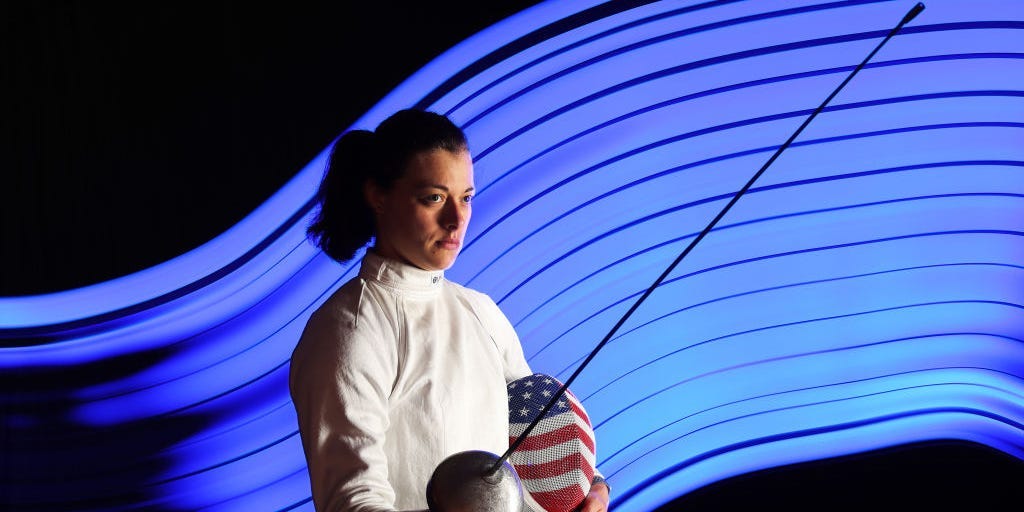- Kat Holmes is a professional fencer competing in the Paris Olympics this summer.
- The 30-year-old is also attending medical school in New York City to become a doctor.
- Her busy schedule includes training, hours of practice and lots of studying.
This essay is based on a conversation with Olympic fencer Kat Holmes and has been edited for length and clarity.
Ever since I was a child, I wanted to be a fencer. and doctor.
Now I'm 30 years old, I've fenced on a world championship winning team, I've been to the Olympics twice, and I'm currently preparing for the Olympics in Paris in July. I'll be back in two weeks when I return to continue my studies at the Icahn School of Medicine at Mount Sinai in New York City.
People often ask me how I find time to do both, and the answer is “I don't know, but I try to do it every day.”
I am attracted to two dreams
I played a lot of sports as a kid: soccer, basketball, swimming, tennis. I tried it all.
I'm also a geek. I love reading about the Middle Ages and swordsmanship. When I was nine years old, I read “Song of the Lion Quartet” by Tamora Pierce. It's about a girl who becomes a knight. I thought it was really cool, so I decided to give swordsmanship a try.
I wasn't particularly good at fencing at first, but I just loved it. I kept doing it. I just had the drive.
In the 1981 film Chariots of Fire, Eric Liddell appears as an Olympic runner. At one point, he says, “I believe God created me with a purpose, but He also made me to run fast. When I run, I feel God's joy.”
That's how I feel when I fence. I'm doing what I'm supposed to do and that's how I felt as a nine-year-old. I just kept going and here I am now.
My parents were really supportive and helped me find affordable classes, but after a few years they told me that playing sports in college was a no-no because it would interfere with my studies.
But my national rankings and my performance made it clear that my real goal was to compete in the Olympics, so my parents finally said, “Yes, you're going to take time off to compete in the Olympics.”
I wanted to be a doctor since I was 13. I sprained my ankle once, and my friend's father was an orthopedic surgeon, so I went to see him and asked him all these questions. So he let me shadow him for many years, starting when I was 15.
The first day I saw a scoliosis correction surgery in the operating room I thought, “Ah, this is what I want to do,” and I've been in medicine ever since.
My busy schedule requires strategic planning.
I enrolled in medical school three days after returning from the 2020 Tokyo Olympics. I spent the first two years training and competing, and then this year I took what is called a “research year” to give myself a bit more time to train and compete in preparation for the Olympics.
On Mondays, Wednesdays, and Fridays, I go to Princeton to train with my fencing coach. It takes me two and a half hours to get there, so I get up pretty early. The lesson is usually one to two hours. Then I do weight training for an hour, then I come back to the city and spar with other fencers. When I'm on the train, I'm always focused on my studies.
On Tuesdays and Thursdays, I go to a gym in New York and train closely with my coach, Future. We do a little bit of an intensive conditioning workout for about an hour. Then I do my schoolwork and focus on that for the majority of the day. Then in the evenings, I spar with other people for two or three hours.
On Saturdays, I always try to do some fun cross-training like pickleball, rock climbing, running, etc. Sunday is my day off. I need a day to recover.
During competitions like the Olympics, I studied between matches. I always had to rent my own room because I was up late studying. I had to take exams on the road.
Sometimes it seems impossible, but I do it, so I don't think all this is impossible.

